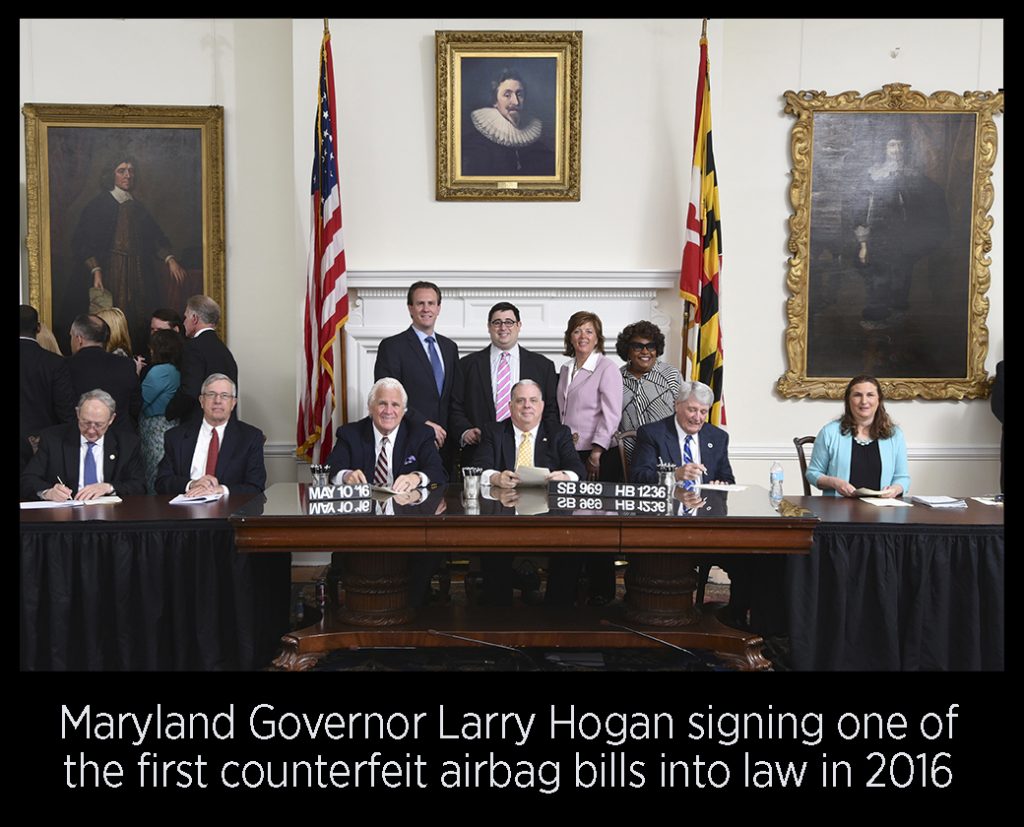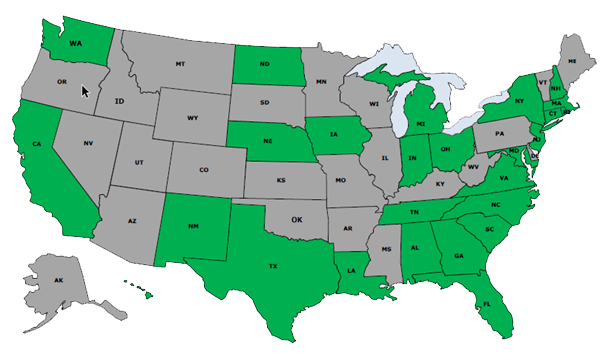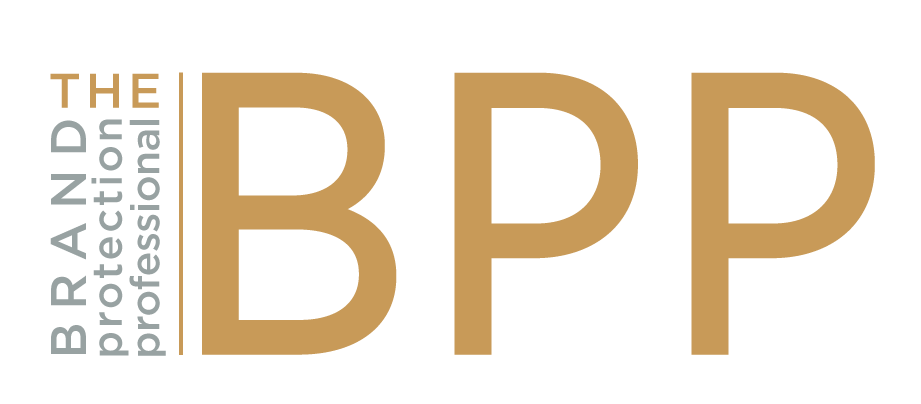Craig Orlan
Senior State Relations Specialist, American Honda Motor Company
The automotive industry is not typically front of mind when people think of counterfeit goods, but the industry has seen a dramatic uptick in the number of fraudulent and potentially dangerous replacement parts imported and sold to unknowing consumers across the country over the past several years. This poses a significant safety risk because, while the integrity of every part in a vehicle is critical to performance and safety, counterfeit airbags pose an especially lethal risk to our customers.
Thousands of counterfeit airbags have been tested over the years by both government and industry and, in every case, failed to perform properly. Many counterfeit airbags quite literally behave like bombs when deployed, as evidenced by a test video released by the National Highway Traffic and Safety Administration (NHTSA). Others have been recovered and found to be filled with newspaper, Styrofoam, trash bags or other debris that were never intended to provide motorists with protection in the event of a collision. Honda is aware of several incidents where these products seriously injured and even killed motorists, such as one case in Texas highlighted by CBS News.

We sought to take swift action and implemented a number of activities to address the issue, including launching an effort to educate the public and work with industry partners, e-commerce retailers, the media and government officials to reduce both the supply of and demand for these counterfeits. We have supported federal law enforcement by sharing and assisting with investigative leads, identifying products at raids and seizures, and providing expert testimony in court. But these efforts were not enough for our company’s senior leadership team who recognized the risk that counterfeits – airbags in particular – pose to public safety and they challenged the company to do more. As a result, Honda began a multi-year process to supplement federal anti-counterfeiting laws by advocating for state laws to prohibit the trafficking of dangerous counterfeit safety system components and nonfunctional replacement airbags, some of the most counterfeited parts we encounter.
Honda brought together automakers, suppliers, aftermarket parts manufacturers, automobile dealers, independent repair shops and the automotive recycling industry to form a coalition to address this issue. We also engaged the National Intellectual Property Rights Coordination Center and their law enforcement partners to better understand the obstacles they faced and how state laws could help them. The result was a model bill, fairly narrow in scope, that banned the trafficking of counterfeit supplemental restraint system components and non-functional replacement airbags designed to deceive vehicle owners into believing they had a legitimate airbag. Over time, the coalition grew to include insurers, law enforcement agencies, safety advocates and medical professionals as well.
In December 2020, Governor Gretchen Whitmer signed HB 4923 and HB 4924 into law, making Michigan the 26th state to enact a version of Honda’s model legislation, with several additional states considering similar legislation in 2021 (See Figure 1). Each state law was enacted with overwhelming bipartisan support and no public opposition. The laws, many of which call for felony charges, provide a significant disincentive for would be counterfeiters and the repair shops that would knowingly install the products into vehicles of unknowing consumers. Importantly, these laws protect consumers owning vehicles of every brand, not just those made by Honda.

Figure 1: States (in green) that have enacted a version of Honda’s model legislation
Under existing federal law, some of the nonfunctional products we are targeting, such as airbag covers without a manufacturer’s insignia, could not be seized by federal authorities even when detected, and were able to enter the stream of commerce. The state legislation authored by Honda and our partners enables federal, state, and local law enforcement agencies to work together in a number of ways, including allowing federal law enforcement agents – in partnership with their state and local counterparts – to seize these products at the border, even though they do not violate federal trademark law or hazardous material regulations. Federal agents also can refer cases that may not be prime candidates for federal prosecution to their state and local counterparts, and can leverage additional charges that serve to obtain valuable information from suspected counterfeiters.
While the National Intellectual Property Rights Coordination Center and their federal law enforcement partners have been enthusiastic and supportive in combatting counterfeiters, adding state partners to the fight has been helpful for all parties involved. Our experience has shown that state policymakers and law enforcement professionals are ready, willing and able to be allies in the fight against counterfeiting, particularly in cases where public health and safety is at risk, and we encourage other industries to find a way to tap into that underutilized resource.
THE BRAND PROTECTION PROFESSIONAL | MARCH 2021 | VOLUME 6 NUMBER 1
2021 COPYRIGHT MICHIGAN STATE UNIVERSITY BOARD OF TRUSTEES
